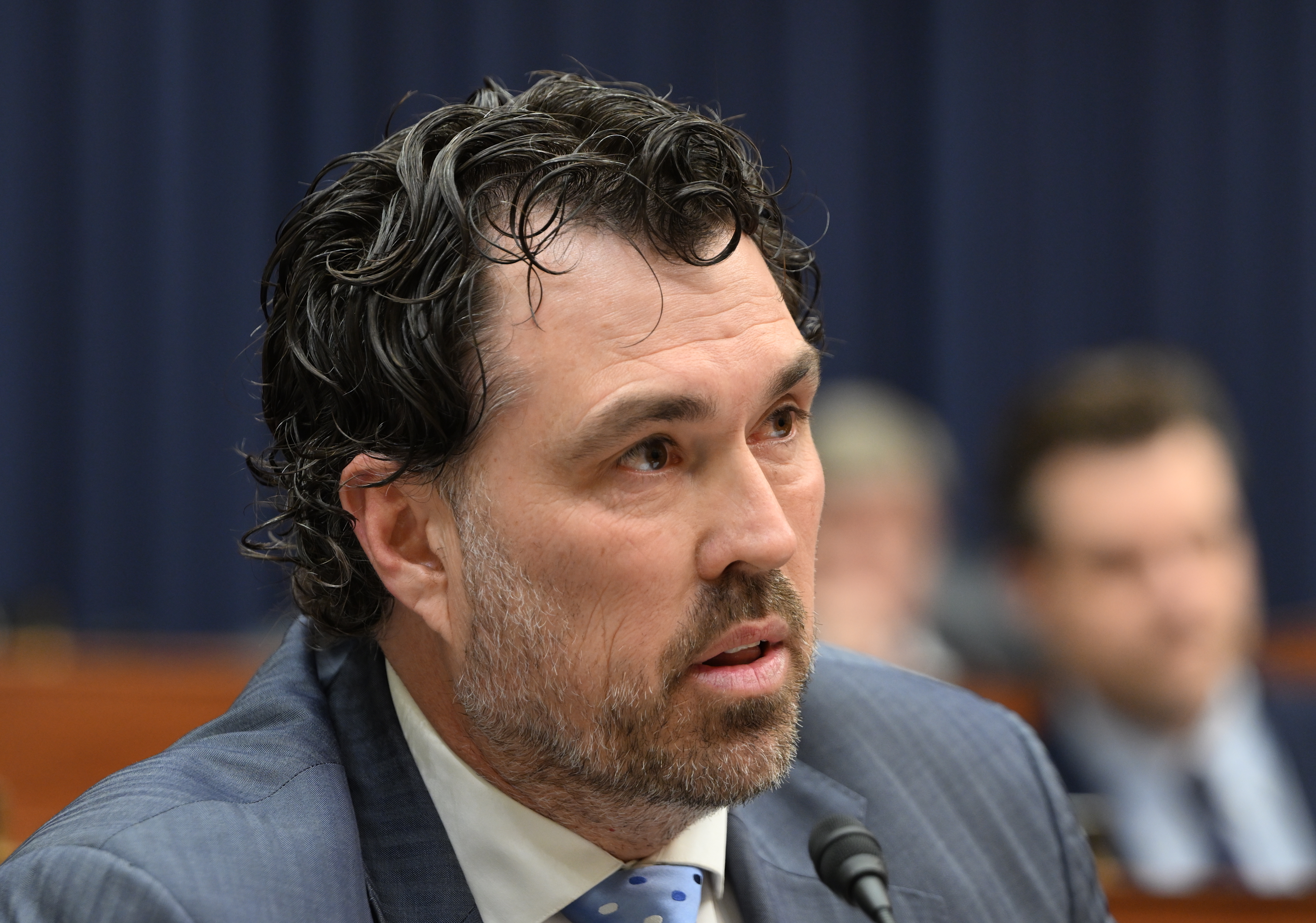CFPB Lawsuit Dropped: What It Means for Student Loans
Trump Administration's Surprising Move: CFPB Lawsuit Dropped!
Introduction: A Shift in the Student Loan Landscape
Remember when the Consumer Financial Protection Bureau (CFPB) was going after National Collegiate Student Loan Trusts? It felt like a David vs. Goliath battle, right? Well, buckle up, because the plot thickens! In a surprising turn of events, the Trump administration decided to dismiss the CFPB’s lawsuit against these trusts. Now, you might be wondering, "What does this even mean?" Let’s dive in and break down the details, explore the potential implications, and try to understand why this decision was made.
What Were the National Collegiate Student Loan Trusts Accused Of?
Think of the National Collegiate Student Loan Trusts as vast pools of student loans, bundled together and managed. The CFPB’s lawsuit, originally filed under the Obama administration, alleged that these trusts were engaged in shady practices, specifically regarding the documentation and servicing of these loans. They claimed that the trusts couldn’t adequately prove they actually owned the debts they were trying to collect on. Imagine someone trying to collect money from you, but they can’t prove you actually owe it to them. That's the gist of it.
Documentation Issues: A House of Cards?
The heart of the CFPB’s argument was that the trusts lacked the necessary documentation to legally pursue borrowers. If the trusts couldn't provide solid proof of ownership, were they even entitled to collect on those loans? This raised serious questions about the legitimacy of their collection efforts.
Servicing Concerns: Who's Really in Charge?
Beyond documentation, the CFPB also raised concerns about how these loans were being serviced. Were borrowers receiving accurate information? Were their payments being properly credited? The agency aimed to ensure that borrowers were treated fairly and transparently throughout the loan process.
The $2.25 Million Settlement: A Glimmer of Hope?
Before the lawsuit was dismissed, there was a glimmer of hope for impacted borrowers in the form of a $2.25 million settlement. This settlement was intended to provide relief to borrowers who had been affected by the alleged illegal practices. But with the lawsuit now dismissed, the future of that settlement is uncertain.
Where Was the Money Supposed to Go?
The plan was for the $2.25 million to be distributed among eligible borrowers who had been wronged by the trusts. This money could have provided much-needed financial relief and helped to ease the burden of student loan debt.
The Settlement's Uncertain Future
Now that the lawsuit has been dropped, the fate of this settlement is up in the air. Will the money still be distributed? Will borrowers still receive the relief they were promised? These are the questions on everyone’s minds.
Why Did the Trump Administration Drop the Lawsuit?
This is the million-dollar question, isn't it? Why would the Trump administration, known for its business-friendly policies, suddenly drop a lawsuit aimed at protecting consumers? There are several possible explanations.
A Shift in Regulatory Philosophy
One theory is that the decision reflects a broader shift in regulatory philosophy under the Trump administration. There was a general trend towards deregulation and a less aggressive approach to consumer protection. Perhaps the administration felt that the lawsuit was overly burdensome or that the CFPB was overstepping its bounds.
Cost-Benefit Analysis: Was the Fight Worth It?
Another possibility is that the administration conducted a cost-benefit analysis and determined that the lawsuit was no longer worth pursuing. Perhaps the costs of litigation were deemed too high, or maybe they felt the chances of success were too low.
Political Considerations: A Change in Priorities?
It's also possible that political considerations played a role. Perhaps the administration had other priorities and didn't want to expend resources on this particular lawsuit. Or maybe they were facing pressure from industry groups to drop the case.
What Does This Mean for Student Loan Borrowers?
The dismissal of the lawsuit has significant implications for student loan borrowers, particularly those who were affected by the alleged illegal practices of the National Collegiate Student Loan Trusts. It's a bit like pulling the rug out from under them, isn't it?
Increased Difficulty in Challenging Loan Validity
With the lawsuit gone, it may become more difficult for borrowers to challenge the validity of their loans. The CFPB’s legal action provided a powerful tool for borrowers to fight back against the trusts. Now, that tool is no longer available.
Renewed Collection Efforts by the Trusts
The dismissal of the lawsuit could embolden the National Collegiate Student Loan Trusts to renew their collection efforts. Without the threat of legal action from the CFPB, they may feel more confident in pursuing borrowers for outstanding debts.
The CFPB Under New Leadership: A Changing Landscape
It's important to remember that the CFPB’s stance on student loan issues has evolved over time, especially with changes in leadership. The agency's priorities and enforcement strategies can shift significantly depending on who's at the helm.
From Aggressive Enforcement to a More Measured Approach
Under the Obama administration, the CFPB took a more aggressive approach to enforcing consumer protection laws. However, under the Trump administration, the agency adopted a more measured and cautious approach.
The Impact of Political Appointments
Political appointments play a crucial role in shaping the direction of the CFPB. The agency's priorities and policies can change dramatically depending on who the President appoints to lead it.
Alternatives for Borrowers: What Can You Do?
Even with the lawsuit dismissed, borrowers still have options. Don't lose hope! There are steps you can take to protect yourself and potentially challenge the validity of your loans.
Consulting with a Consumer Protection Attorney
One of the best things you can do is to consult with a consumer protection attorney. An attorney can review your loan documents, assess your legal options, and represent you in negotiations or litigation.
Exploring Debt Validation Options
You also have the right to request validation of your debt. This means demanding that the lender provide proof that you owe the debt and that they have the right to collect it. If they can't provide adequate documentation, you may be able to challenge the validity of the loan.
Filing Complaints with Regulatory Agencies
Even though the CFPB lawsuit is over, you can still file complaints with other regulatory agencies, such as the Federal Trade Commission (FTC) or your state's attorney general. These agencies may be able to investigate your case and take action against the lender.
The Broader Implications for Consumer Protection
The dismissal of this lawsuit raises broader questions about the future of consumer protection in the student loan industry. Will other lawsuits be dropped? Will regulatory agencies become less aggressive in their enforcement efforts? These are issues that deserve close attention.
A Potential Weakening of Consumer Safeguards
Some worry that the dismissal of this lawsuit signals a weakening of consumer safeguards in the student loan industry. If lenders feel that they can operate with impunity, they may be more likely to engage in unfair or deceptive practices.
The Importance of Vigilance
In this environment, it's more important than ever for borrowers to be vigilant and informed about their rights. Stay up-to-date on the latest developments in student loan law and be proactive in protecting yourself from predatory lending practices.
The Political Landscape: A Partisan Divide?
Student loan issues have become increasingly politicized in recent years. Democrats tend to favor stronger consumer protections and more government intervention, while Republicans tend to favor deregulation and a more market-based approach. This partisan divide can make it difficult to find common ground on student loan reform.
The Future of Student Loan Reform
The future of student loan reform remains uncertain. With the political landscape constantly shifting, it's difficult to predict what changes may be on the horizon. However, one thing is clear: student loan debt is a major issue that needs to be addressed.
A Call to Action: Staying Informed and Engaged
Regardless of your political affiliation, it's important to stay informed and engaged on student loan issues. Contact your elected officials, participate in public forums, and make your voice heard. Together, we can work towards a more fair and equitable student loan system.
Conclusion: Navigating the New Reality
The Trump administration's decision to drop the CFPB lawsuit against National Collegiate Student Loan Trusts marks a significant shift in the student loan landscape. While the reasons behind this decision are complex and multifaceted, the implications for borrowers are clear. It is now more important than ever for borrowers to be informed, proactive, and prepared to defend their rights. Whether you're challenging loan validity, exploring debt validation, or seeking legal advice, remember that you have options and you're not alone. Stay vigilant, stay informed, and don't be afraid to fight for what's fair.
Frequently Asked Questions
- What exactly were the National Collegiate Student Loan Trusts accused of?
The CFPB alleged the trusts lacked sufficient documentation to prove ownership of the debts they were collecting on and raised concerns about loan servicing accuracy.
- What was the purpose of the $2.25 million settlement?
The settlement was intended to provide financial relief to borrowers harmed by the trusts' alleged illegal practices.
- Why did the Trump administration dismiss the lawsuit?
Possible reasons include a shift in regulatory philosophy, a cost-benefit analysis deeming the lawsuit too expensive, or political considerations.
- What can I do if I believe I was wrongly targeted by the National Collegiate Student Loan Trusts?
Consult with a consumer protection attorney, explore debt validation options, and file complaints with regulatory agencies like the FTC or your state's attorney general.
- How does this dismissal impact future student loan regulations?
It could signal a weakening of consumer safeguards, making it crucial for borrowers to stay informed and proactive in protecting their rights against predatory lending practices.

